#The Petersons
Text
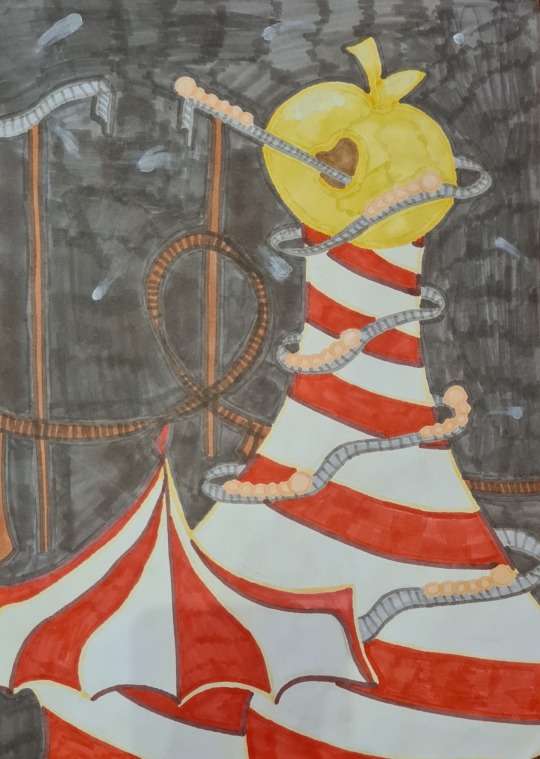
welcome to the Golden Apple amusement park!!
(the way I imagine the Rotten Core to look like)
#hello neighbor#hello neighbor hide and seek#hello neighbor 2#hello neighbor aaron#hello neighbor mya#hello neighbor books#hello neighbor puzzle master#hello neighbor grave mistakes#hello neighbor bad blood#golden apple amusement park#golden apple#raven brooks#hn#hello neighbor art#hello neighbor fanart#fanart#the petersons#aaron peterson#mya peterson#rotten core
24 notes
·
View notes
Text
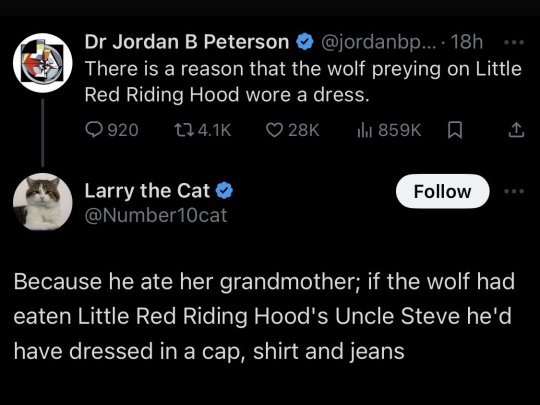
10K notes
·
View notes
Text

Cassandra Peterson and her alter ego, Elvira, Mistress of the Dark, 1980s
#cassandra peterson#elvira#aesthetic#vintage#old school cool#70s girl#80s fashion#80s icons#80s nostalgia#femme fatale#mistress of the dark
34K notes
·
View notes
Text


i think about elvira and her butch everyday
#finding out that my goth inspiration growing up is also femme4butch did something to my brain#elvira#cassandra peterson#femme4butch
40K notes
·
View notes
Text
don bluth films occupy a weird space because he's both inarguably an auteur who directs very strange, earnest, often "ugly" films but also a guy who near exclusively made movies for 8 year olds in the home video era. so basically everything he's ever done is a grimy, dreamy rumination on death and spirituality and has a direct to video sequel called something like secret of nimh 2: mrs. brisby's holiday adventure
#this happens to a lot of family films obviously#but i can't really think of another director that has a familiar divide between a very stylistic and thematically specific body of work#and direct to video kids movie-quality sequels#the sequels to musker and clements films don't really have the same severe difference in tone to the originals#what happened to neverending story didn't happen to every wolfgang peterson movie#etc
4K notes
·
View notes
Text
When a straight man lashes out after dating or having sex with a trans woman, he is often afraid of the implication that his sexuality is joined to hers. When a gay man anxiously keeps trans women out of his activism or social circles, he is often fearful of their common stigma as feminine. And when a non-trans feminist claims she is erased by trans women’s access to a bathroom, she is often afraid that their shared vulnerability as feminized people will be magnified intolerably by trans women’s presence. In each case, trans misogyny displays a fear of interdependence and a refusal of solidarity. It is felt as a fear of proximity. Trans femininity is too sociable, too connected to everyone—too exuberant about stigmatized femininity—and many people fear the excess of trans femininity and sexuality getting too close. But sociability can never be confined or blamed on one person in a relationship; it’s impersonal, and it sticks to everyone.
The defensive fear and projection built into trans misogyny, whether genuine or performed, is an attempt to wish away what it nonetheless recognizes: that trans femininity is an integral part of the social fabric. There will be no emancipation for anyone until we embrace trans femininity’s centrality and value.
Jules Gill-Peterson, A Short History of Trans Misogyny
6K notes
·
View notes
Text
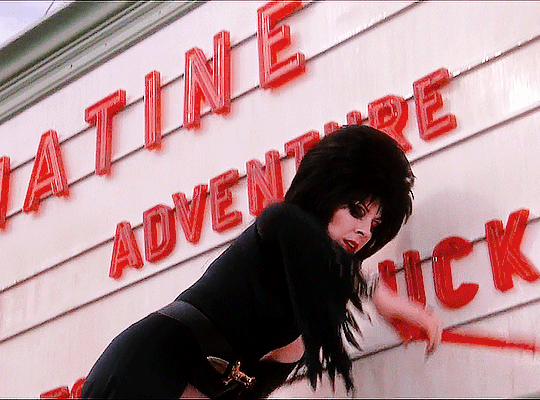
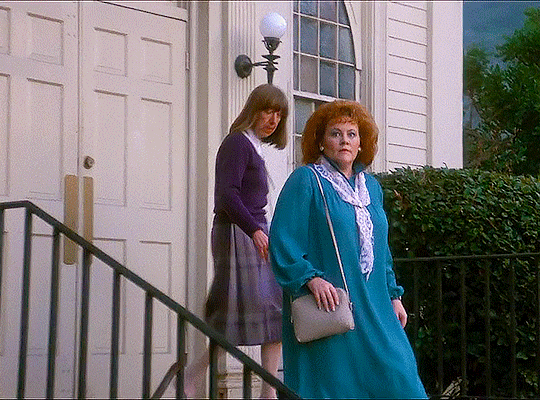
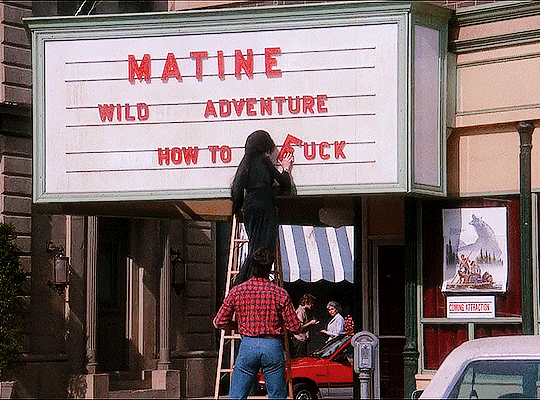

Elvira: Mistress Of The Dark (1988)
#Horror#Horroredit#Elvira: Mistress Of The Dark#James Signorelli#Cassandra Peterson#Elvira#Daniel Greene#Edie McClurg#Kate Brown#CHB#1988#80s
18K notes
·
View notes
Text




ELVIRA: MISTRESS OF THE DARK (1988) dir. James Signorelli
#elvira#elvira: mistress of the dark#cassandra peterson#classichorrorblog#userbabysitter#userhorroredits#userscary#dailyflicks#junkfooddaily#horrortvfilmsource#horroredit#filmedit#*#films
2K notes
·
View notes
Text

єℓνιяα: мιѕтяєѕѕ σƒ тнє ∂αяк 🖤
2K notes
·
View notes
Text
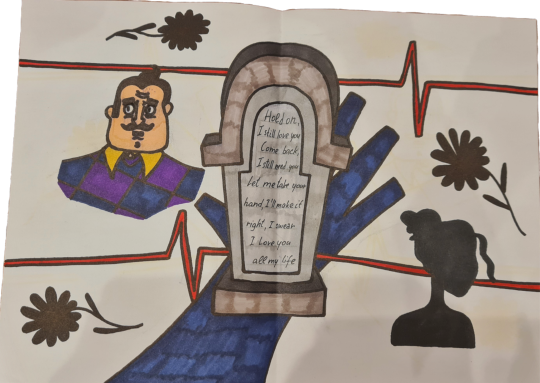
another old drawing, this one of Theodore and Diane. I've been in love with this song for a long time, but at some point I thought of these two while listening to it so I HAD to draw this
#hello neighbor#hello neighbor 2#hello neighbor books#hello neighbor hide and seek#hn#raven brooks#aaron peterson#hello neighbor aaron#hello neighbor grave mistakes#hello neighbor mya#hello neighbor diane#diane peterson#hello neighbor theodore#theodore peterson#the petersons#mya peterson#hello neighbor art#hello neighbor fanart#hello neighbor edit#Spotify
12 notes
·
View notes
Text
In contrast with professional drag queens, who were only playing at being women onstage, [Esther] Newton learned that the very bottom of the gay social hierarchy was the province of street queens. In almost total contrast to professional queens, street queens were "the underclass of the gay world." Although they embraced effeminacy, too, they did so in the wrong place and for the wrong reason: in public and outside of professional work. As a result, Newton explained, the street queens "are never off stage. Their way of life is collective, illegal, and immediate." Because they didn't get paid to be feminine and were locked out of even the most menial of nightlife jobs, Newton observed that their lives were perceived to revolve around "confrontation, prostitution, and drug 'highs'." Even in a gay underworld where everyone was marked as deviant, it was the sincere street queens who tried to live as women who were punished most for what was celebrated-and paid-as an act onstage. When stage queens lost their jobs, they were often socially excluded like trans women. Newton explained that when she returned to Kansas City one night during her fieldwork, she learned that two poor queens she had met had recently lost their jobs as impersonators. Since then, they had become "indistinguishable from street fairies," growing out their hair long and wearing makeup in public-even "passing" as girls in certain situations," in addition to earning a reputation for taking pills. They were now treated harshly by everyone in the local scene. Most people wouldn't even speak to them in public. Professional drag queens who didn't live as women still had to avoid being seen as too "transy" in their style and demeanor. One professional queen that Newton interviewed explained why: it was dangerous to be transy because it reinforced the stigma of effeminacy without the safety of being onstage. "I think what you do in your bed is your business," he told Newton, echoing a middle-class understanding of gay privacy, "[but] what you do on the street is everybody's business."
The first street queen who appears in Mother Camp is named Lola, a young Black trans girl who is "becoming a woman,' as they say'." Newton met Lola at her dingy Kansas City apartment, where she lived with Tiger, a young gay man, and Godiva, a somewhat more respectable queen. What made Godiva more respectable than Lola wasn't just a lack of hormonal transition. It was that Godiva could work as a female impersonator because she wasn't trying to sincerely live as a woman. Lola, on the other hand, was permanently out of work because being Black and trans made her unhireable, including in female impersonation. When Newton entered their apartment, which had virtually no furniture, she found Lola lying on "a rumpled-up mattress on the floor" and entertaining three "very rough-looking young men." These kinds of apartments, wrote Newton, "are not 'homes.' They are places to come in off the street." The extremely poor trans women who lived as street queens, like Lola, "literally live outside the law," Newton explained. Violence and assault were their everyday experiences, drugs were omnipresent, and sex work was about the only work they could do. Even if they didn't have "homes," street queens "do live in the police system."
As a result of being policed and ostracized by their own gay peers, Newton felt that street queens were "dedicated to "staying out of it" as a way of life. "From their perspective, all of respectable society seems square, distant, and hypocritical. From their 'place' at the very bottom of the moral and status structure, they are in a strategic position to experience the numerous discrepancies between the ideals of American culture and the realities." Yet, however withdrawn or strung out they were perceived to be, the street queens were hardly afraid to act. On the contrary, they were regarded by many as the bravest and most combative in the gay world. In the summer of 1966, street queens in San Francisco fought back at Compton's Cafeteria, an all-night venue popular with sex workers and other poor gay people. After management had called the police on a table that was hanging out for hours ordering nothing but coffee, an officer grabbed the arm of one street queen. As the historian Susan Stryker recounts, that queen threw her coffee in the police officer's face, "and a melee erupted." As the queens led the patrons in throwing everything on their tables at the cops-who called for backup-a full-blown riot erupted onto the street. The queens beat the police with their purses "and kicked them with their high-heeled shoes." A similar incident was documented in 1959, when drag queens fought back against the police at Cooper's Donuts in Los Angeles by throwing donuts-and punches. How many more, unrecorded, times street queens fought back is anyone's guess. The most famous event came in 1969, when street queens led the Stonewall rebellion in New York City. Newton shares in Mother Camp that she wasn't surprised to learn it was the street queens who carried Stonewall. "Street fairies," she wrote, "have nothing to lose."
Jules Gill-Peterson, A Short History of Trans Misogyny
5K notes
·
View notes
Text

Elvira Moonbathing (1987)
#elvira mistress of the dark#cassandra peterson#elvira moonbathing#80s horror hosts#80s posters#80s pinups#photography#david goldner#elvira fan club#one stop posters#1980s#1987
5K notes
·
View notes
Text



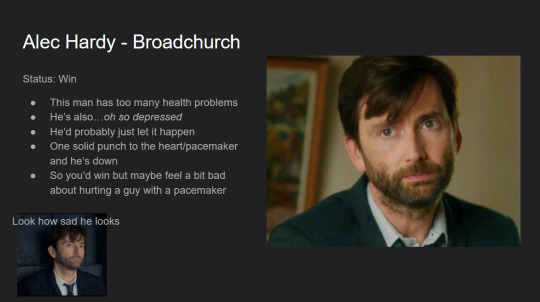
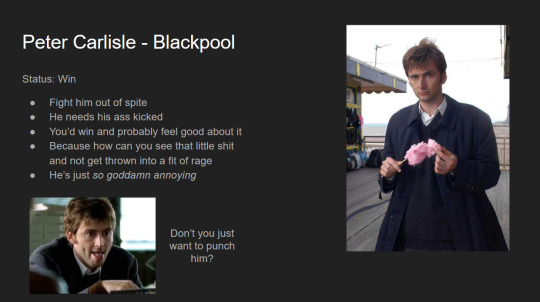

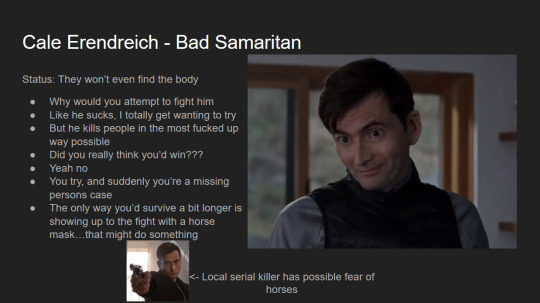
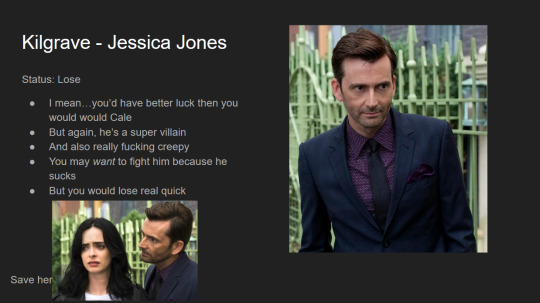

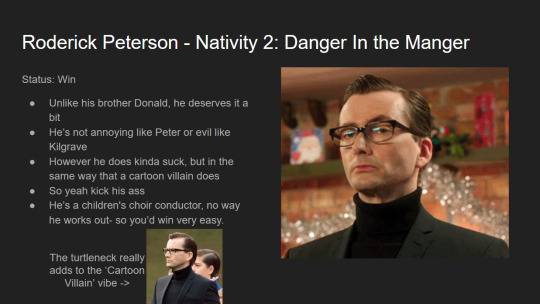
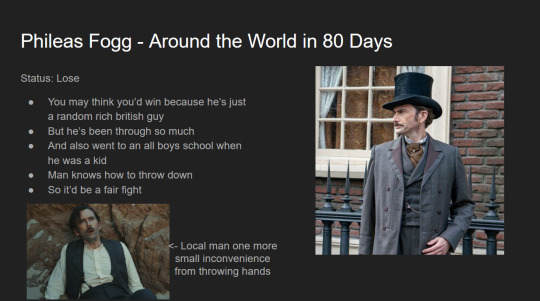

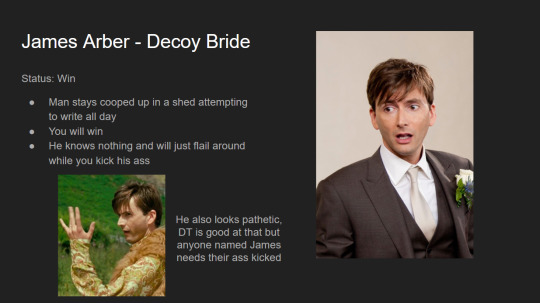

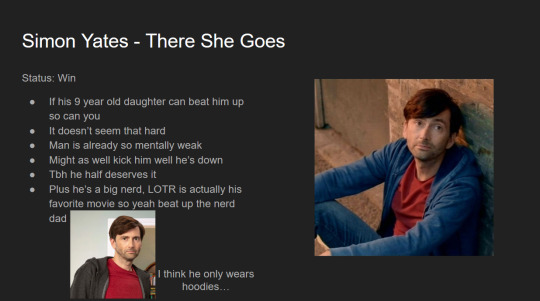

Do people still make powerpoint memes?
#broadchurch#alec hardy#tenth doctor#doctor who#campbell bain#takin' over the asylum#peter carlisle#blackpool#donald peterson#roderick peterson#nativity 2: danger in the manger#kilgrave#david tennant#phileas fogg#around the world in 80 days#peter vincent#fright night#the decoy bride#james arber#christ these tags#pls no one say 'well wheres -'
5K notes
·
View notes


